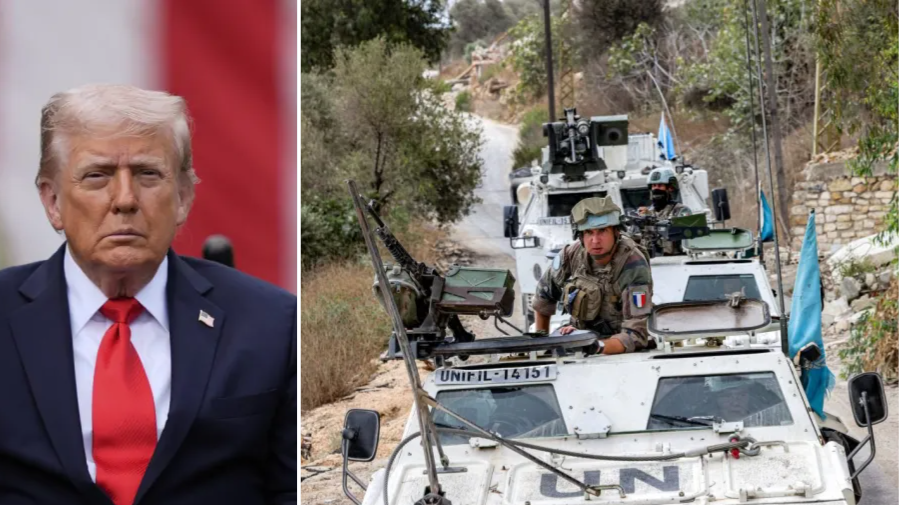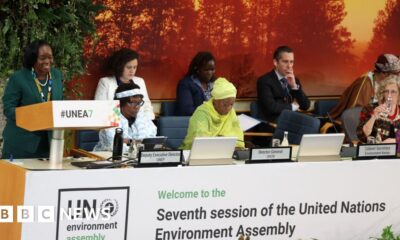World
US Envoy’s Lebanon Plan Sparks Controversy Over Diplomacy

The recent visit by US envoy Thomas Barrack to Lebanon has generated significant controversy, not for the reasons anticipated by the White House. During his trip, Barrack made headlines after referring to Lebanese reporters as “animalistic,” a comment that incited widespread outrage. Additionally, his proposal for an economic zone in southern Lebanon raised further eyebrows and highlighted challenges in US diplomatic efforts in the region.
Proposal for an Economic Zone
While in Beirut, Barrack suggested creating an industrial buffer zone aimed at addressing Israeli security concerns and promoting economic development in local communities. According to Barrack, the plan, initially discussed with Israeli officials in Paris, could potentially draw investment from Saudi Arabia and Qatar. The envisioned zone would entail establishing state-run factories physically separated from Israeli communities, which some analysts believe could prevent Hezbollah from reestablishing a presence along the southern border.
Despite its intentions, the proposal faces considerable opposition. It would necessitate displacing residents from 27 villages and deploying US troops to maintain order within the zone, effectively creating a security corridor. Critics have likened it to the controversial concept of a “Gaza Riviera,” reflecting a misunderstanding of the deep-rooted political grievances in Lebanon.
Experts have dismissed the economic zone idea, emphasizing that Lebanese authorities and the public are unlikely to accept any arrangement that compromises national sovereignty. Michael Young, a senior editor at the Malcolm H Kerr Carnegie Middle East Centre, noted, “There is a consensus in Beirut that this shouldn’t happen.”
Local Sentiment and Regional Implications
The proposal also risks exacerbating existing tensions, particularly given Israel’s reported plans to construct surveillance towers along the border, which would further alienate Lebanese support. Dr. Karim Makdisi, an associate professor at the American University of Beirut, criticized the plan as indicative of a decline in US diplomatic effectiveness, describing Barrack and similar figures as “lightweight” millionaires lacking a nuanced understanding of the region.
Sam Heller, a fellow at the Century Foundation, expressed skepticism about whether Barrack fully considered the implications of his proposal, labeling it a “half-baked” approach to incentivizing cooperation from Hezbollah. He remarked that the plan essentially amounts to a promise of jobs in Gulf-funded factories in exchange for permanent displacement from their homes.
The broader context further complicates the situation. The US’s credibility as a mediator in the Arab world has waned, especially following recent events, including an Israeli attack on Qatar. Local perceptions of Washington as unreliable have been reinforced, particularly among pro-Western factions in Lebanon. Dr. Karim Emile Bitar, a lecturer at Sciences Po Paris, pointed out that trust in the US is diminishing, making discussions around an economic zone premature.
Moving forward, experts suggest that US diplomatic efforts would be better focused on facilitating a negotiated settlement between Lebanon and Israel. Such an approach could foster regional stability without compromising Lebanon’s sovereignty. Young concluded, “This is a policy that will lead nowhere, and I think it is misleading,” emphasizing that the belief in imposing peace without compromises from Israel is unrealistic.
The unfolding situation underscores the complexities of US involvement in the Middle East and the challenges of reconciling different political landscapes. As Washington navigates these intricate dynamics, the effectiveness of its diplomatic strategies remains in question.
-

 World3 days ago
World3 days agoCoronation Street’s Shocking Murder Twist Reveals Family Secrets
-

 Entertainment4 months ago
Entertainment4 months agoKate Garraway Sells £2 Million Home Amid Financial Struggles
-

 Entertainment3 months ago
Entertainment3 months agoAnn Ming Reflects on ITV’s ‘I Fought the Law’ Drama
-

 Health3 months ago
Health3 months agoKatie Price Faces New Health Concerns After Cancer Symptoms Resurface
-

 Entertainment3 weeks ago
Entertainment3 weeks agoCoronation Street Fans React as Todd Faces Heartbreaking Choice
-

 World4 weeks ago
World4 weeks agoBailey Announces Heartbreaking Split from Rebecca After Reunion
-

 Entertainment6 days ago
Entertainment6 days agoTwo Stars Evicted from I’m A Celebrity Just Days Before Finale
-

 World6 days ago
World6 days agoKevin Sinfield Exceeds Fundraising Goal Ahead of Final Marathons
-

 Entertainment3 months ago
Entertainment3 months agoCoronation Street’s Carl Webster Faces Trouble with New Affairs
-

 Entertainment3 months ago
Entertainment3 months agoWhere is Tinder Swindler Simon Leviev? Latest Updates Revealed
-

 Entertainment4 months ago
Entertainment4 months agoMarkiplier Addresses AI Controversy During Livestream Response
-

 Science2 months ago
Science2 months agoBrian Cox Addresses Claims of Alien Probe in 3I/ATLAS Discovery





















